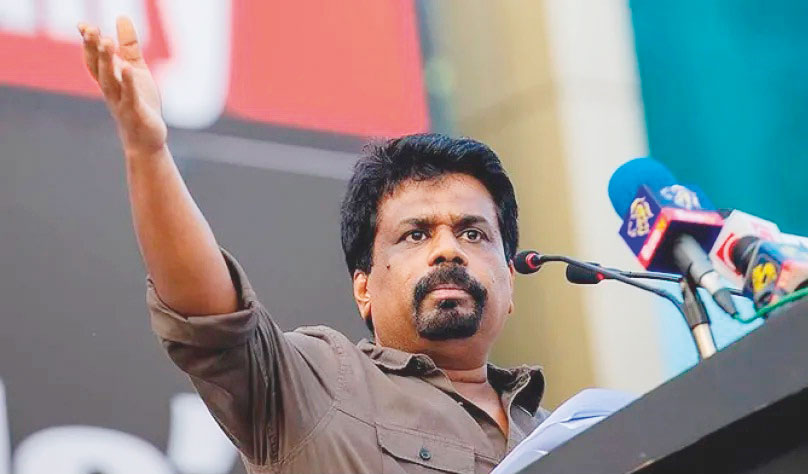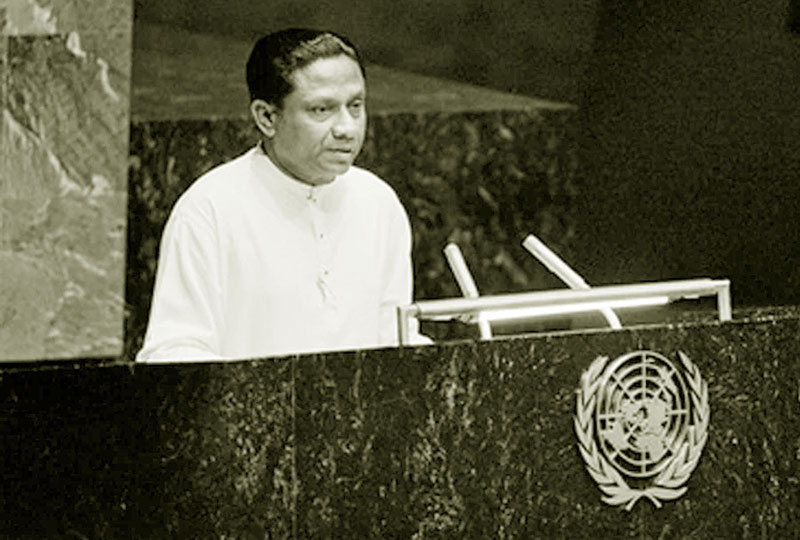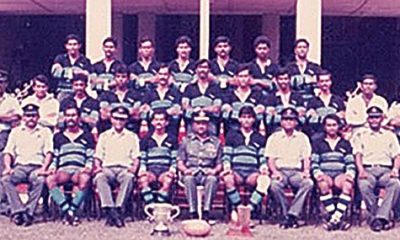Features
REDEEMERS : celebrating four years

The band Redeemers are relatively new to the showbiz scene, considering that they have been around for only four years.Yes, they turned four on 4th June, 2023, but, within those four years, they have proved that they are an outfit, let’s say, more accomplished, and more professional, than some of our outfits that have been around for a much longer time.
that they have been around for only four years.Yes, they turned four on 4th June, 2023, but, within those four years, they have proved that they are an outfit, let’s say, more accomplished, and more professional, than some of our outfits that have been around for a much longer time.
They not only have quality voices but also a good, and entertaining, stage act.There is excitement when they go into action and that is precisely why music lovers, abroad, want the Redeemers for their events.
A spokesman for the band had this to say:
“Looking back at our humble beginnings, it has been a long, challenging, yet satisfying journey so far.
“We are grateful to have been able to stand together, as a team, through the seasons, and go on to being one of the most loved and in demand bands in the country.”
What makes the Redeemers a draw card is their ability to adapt to the occasion and entertain any audience, be it 100% English or 100% Sinhala.
They are, indeed, a versatile band as their repertoire spans different eras and a multitude of genres. Their goal, they say, is to make sure their audience is fully satisfied, no matter where they perform.
The spokesman went on to say that the band is also looking forward to presenting music lovers with their very own original songs…with their first almost ready to be released.For now, this bit of news is a secret, but, I’m told, that the Redeemers are also eagerly looking forward to sharing the stage with one of the biggest international bands, towards the end of this year.
The outfit is now preparing for their tour of Australia, this month, and also in August, as well as two other overseas tours, later this year. On 22nd July, they will be doing the ‘Christmas in July’ dinner dance, to be held at the Grand On Princes, in Melbourne.
This dance will also bring into the spotlight Esric Jackson and a three-piece outfit, Stex.The Redeemers are a multi-talented band, made up of Ru ill (female vocalist), Ashan de Silva (lead guitarist), Dexter Batcho (vocalist), Ruwan Perera (drummer), Nishantha de Abrew (keyboardist), John Premshan (vocalist), Melon Perera (percussionist) and William Jayawardena (bass).
Redemtion was the original name they thought of calling themselves, but changed to Redeemers, as suggested by Berti Ekenaike, a well-known showbiz enterprenuer, based in Melbourne, Australia.The Redeemers can be reached at 0778327715
Features
How royal divorce papers have shaken the Zulu kingdom

The love life of South Africa’s Zulu king has the country agog – and has scandalised his socially conservative subjects as he messes with tradition by seeking a divorce.
Polygamy is part of Zulu culture, but King Misuzulu kaZwelithini has taken the unusual step of going to court to divorce his first wife, Queen Ntokozo kaMayisela.
“Everyone was puzzled. People were not expecting the king to go so far as to file for divorce,” Prof Gugu Mazibuko, a cultural expert at South Africa’s University of Johannesburg, told the BBC.
“In Zulu culture, there is no divorce. You are not supposed to chase away your wife,” she said.
Regarded as the “lion of the nation”, the Zulu king is the custodian of age-old traditions that place marriage and polygamy at the heart of royal success.
His role within South Africa may only be ceremonial, but he remains hugely influential, with a yearly government-funded budget of several million dollars.
The monarch – who grew up in neighbouring Eswatini, studied in the US and came to the throne in 2021 – seems to court controversy.
His coronation was challenged in court by his elder half-brother, who has been trying to snatch the crown from him.
His second marriage appears to be shaky, his attempt to take a third wife hit the buffers and there are also reports of another dalliance with a young princess.
However, the 50-year-old’s troubled personal life used to be discussed in hushed tones – that is until he filed divorce papers in December.
Prof Mazibuko acknowledged that historical records appeared to suggest that a Zulu monarch in the 20th Century had divorced one of his queens, but it had been a “top royal secret”, given royal divorce is not the norm.
“If a marriage does not work out, the wife will still live in the king’s homestead. She will be given her own space. She will not have a relationship with the king, but she and her children will be well-cared for.”

It was just before his accession to the throne – following the sudden death of his father and mother four years ago – that the then-Prince Misuzulu married Ntokozo Mayisela.
The two were already a couple and had two children together, but according to another cultural expert, Prof Musa Xulu of the University of Zululand, the decision to marry appeared be be hurried.
“It seems as though he felt he could not be a king without a wife,” he told the BBC.
Queen kaMayisela came from an “ordinary family” – as many of the wives of Zulu kings do – in a small mining town in KwaZulu-Natal province.
It was as a cabaret singer performing at a restaurant in the coastal city of Durban that she caught the royal eye, the academic said.
Her senior status in the family was made clear at the king’s state coronation in December 2022 when she sat by his side.
But her position is now under threat, with the monarch saying in court papers that they have not lived as husband and wife for at least a year and their marriage has irretrievably broken down.
The palace followed this by sending out invitations for the king’s wedding to a new bride, Nomzamo Myeni, set to take place in late January. The bride-price, known as lobola, had already been paid in cattle – a prized asset in Zulu culture.
Queen kaMayisela did not take any of this lying down, instituting separate court action to halt the wedding, which was postponed as a result.
Her argument was that the king – known to his subjects as “Ingonyama”, meaning Lion – would be committing the offence of “bigamy” without first “converting” his civil marriage to her into a traditional Zulu marriage.
But the judge threw out her case, saying she had had a “turnaround” in attitude as she had already agreed her husband could take other wives.
He noted the monarch had already done so – marrying Nozizwe kaMulela, the MD of Eswatini Bank, in 2022.

Prof Mazibuko explained that polygamy was not initially part of Zulu culture, in fact the first two kings were bachelors.
But it was embraced by their successors – King Misuzulu is the ninth monarch of the Zulu nation – and has become part of Zulu culture. “That’s how we build families, especially the royal family,” Prof Mazibuko said.
Queen kaMulela comes from an influential family in Eswatini and the marriage was apparently arranged to strengthen the ties between the royal families.
Yet it is unclear whether the pair are still in a relationship, as the high-powered banker has not been spotted at Zulu cultural events for a while – with speculation their final marriage rituals have not been completed.
The current king’s various marriage problems seem to stem from the fact that tradition has not been properly followed.
In the case of the first wife, he opted for a modern-day marriage, without a traditional wedding.
“For a marriage to be perfected under Zulu custom, there has to be a public gathering, with song and dance,” Prof Xulu said.
“You, as the bride, must lead with a solo song and the bride-maids dance with you, and you carry a spear which you give to the king – and then there is no going back.”

This has left Queen kaMayisela without the protection of tradition – and only the offer of monthly maintenance of $1,100 (£850) for a year, though she was likely to demand more before returning to the life of a commoner, Prof Xulu said.
In the case of the second wife, the academic said lobola had been paid in January 2022, but royal insiders suggest the king felt “those who went to pay didn’t have the authority to do so” – plus this union has not been marked with a public ceremony.
The fortunes of the would-be third wife, Nomzamo Myeni, remain unclear as the king failed to marry her in January despite the court giving the go-ahead.
Prof Xulu said that in Zulu culture a “postponed” marriage usually never takes place.
Though Ms Myeni is still being seen with the king, accompanying him to a state event last week where she was reffered to as a queen, suggesting their wedding may take place once the king’s divorce goes through.
Yet as a commoner she would bring no powerful connections with her, which may be why one of the monarch’s aides recently confirmed to local media there was “a new queen-to-be” – Sihle Mdluli, who hails from the royal family of a small ethnic group in South Africa.

The aide suggested she might be named “the mother of the nation” – a title that would make her the most senior queen with her children likely heirs.
But Prof Xulu said he would not be surprised if that wedding also failed to take place, as the king’s relationships all seemed to run into trouble.
“I am not sure whether he was ready to be king, and whether he has good advisers,” the academic said.
He pointed out that the monarch had also been behaving erratically in his public life, sacking several senior officials in his retinue.
On top of this, he has installed himself as the chairman of the board of a financially lucrative land trust, of which he is the sole trustee.
The trust was controversially established shortly before South Africa became a democracy in 1994, giving it control of about 2.8 million hectares (seven million acres) of land in KwaZulu-Natal.
King Misuzulu has also suspended all members of the board, bar one, accusing them of being uncooperative.
He did this against the advice of the government, which pointed out that as chairman he would be required to account to parliament about the trust’s operations – something that would not be in keeping with his status as a constitutional monarch.
The dispute remains unresolved, giving the government a major political headache as it tries to avoid going head-to-head with the king.

Prof Xulu said he would not be surprised if at some point a powerful rival faction within the royal family launched a fresh bid to dethrone him by asking the courts to rule that he is not “fit and proper” to be king.
The monarch’s half-brother, Prince Simakade Zulu, who is the late king’s eldest son, has long coveted the crown, but his backers were outmanoeuvred by Misuzulu’s allies in succession discussions.
President Ramaphosa later gave Misuzulu a “certificate of recognition”, paving the way for him to be funded by the government.
But Prince Simakade’s supporters did not give up – going to the High Court to declare his state coronation “unlawful” – and won.
The court ruled that President Ramaphosa had failed to comply with the law, which required him to order an investigation into objections to Misuzulu’s accession.
The status quo remains, pending the outcome of an appeal.
The scandals have the potential to weaken the king’s position should it come to another tussle for the crown.
Though Prof Mazibuko noted there had always been fierce competition for the Zulu crown – except these days it takes place in court instead of a bloody battlefield.
“He is not the first king to go through a lot,” she said. “I hope he survives, and everything settles down.”
[BBC]
Features
Summary Justice is Indefensible

By Anura Gunasekera
On December 3, 2021, then member of parliament, Anura Kumara Dissanayake, today the President of Sri Lanka, made an impassioned speech in the House, against the killing of suspects in police custody, allegedly on the grounds of self-defence. He compared the spate of such incidents to the repeated enactment of the same brutal theatre (“Natakaya”), the word being used with a grim irony.
The following writing is framed in the above context, and, also, in the expectation of what President AKD will soon be compelled to state, in the context of the first of such deaths under his watch, and in the fervent hope that it will also be the last.
TIMES On Line- Sunday Feb 23, 2025 – ” Police shot dead two suspects arrested over a murder in Kotahena when they reportedly tried to grab a weapon of a policeman and escape. One policeman was also injured in the shootout. Police claimed the two suspects had been taken to show the location of a weapon hidden by them”
Remove the identification of the location (“Kotahena”) and the balance narrative will correspond with all previous killings of suspects in police custody, elevated to an art form under the Mahinda-Gotabaya Rajapaksa dispensation. The rationale had become a “cut-and-paste” exercise. Each such incident has been followed by a legal inquiry but the writer is unaware of any action instituted against police officers involved, for either negligence, use of excessive force, irregularities in the modus operandi – which is governed by strict departmental guidelines- or for the inability of the police to establish their bona-fides for their conduct.
The absence of any censure or punitive action suggests that the judiciary itself has confirmed the legality of the killings. In a country where a de-facto moratorium on legally ordered executions has been in force since 1976, executions have been regularly carried out by various arms of the State, as well as by para-military cohorts sponsored by the State.
Custodial deaths have become so common in Sri Lanka that they have become a mere statistic. According to the Human Rights Commission of Sri Lanka (HRCSL), during the period January 2020 to August 2023, there have been 24 custodial deaths and 13 encounter deaths, all involving the Sri Lanka Police; nothing new, if one reverts to the deaths whilst in police custody, in 1966, of Sgt Thilakawardane and L.V. Podiappuhamy (“Dodampe Mudalali”), eventually ruled at a magistrate’s inquiry as murder. The private plaint against the police was later withdrawn by Attorney General A.C.M. Ameer, then considered a high-profile political appointee.
However, it is not the numbers that count but its corrosive, intimidatory impact on civil society and the message of vulnerability that such killings send to the politically unconnected, as well as their impact on the political discourse and the country’s global image. Custodial murder only weakens existing judicial systems, eroding the credibility and relevance of the systems and of law-enforcement. That extra-judicial executions have zero impact on criminals and criminality, is evident from the continuing flourishing of crime.
There is another critical aspect to custodial deaths, especially of those who are patently guilty or with proven histories of crime. Successful criminals do not operate alone, in a social vacuum. Organized crime, irrespective of the country, exists and flourishes because of the nexus between the criminal, segments of civil society, unscrupulous politicians, clever lawyers and, in particular, corrupt law-officers and crooked businessmen and financiers. Thus, the summary elimination of the suspect eliminates the vital link between the crime, the criminal and its patrons. Unless the investigative arm of the law is able to reach back to its roots, crime will continue to thrive despite the killing of criminals.
The elimination of an alleged criminal before he/she is processed by the justice system, also stops the vehicle of justice in its tracks. Therefore, it is logical to assume that the primary purpose of an extra-judicial killing is to prevent the exposure of the connectivity between the criminal and his/her patrons, rather than the misdirected zeal to circumvent the cumbersome judicial mechanism and instead, deliver instant justice.
SSP Buddhika Manatunge, current police spokesman, appearing before TV, displaying the same bland detachment of his predecessors, in measured tones briefly described the latest event. But what is required is not a soothing commentary but a comprehensive, objective investigation of the incident, followed by an impartial judgment which will ensure that the dead suspects receive the justice denied to them, by the brutal interruption to due process.
The nexus between organized crime, known criminals, law-enforcement and the political body has always existed but was institutionalized by the JR Jayawardene (JRJ) government (1977- 1994), and openly fostered by every government which followed, with the exception of the current regime. A few of the most notorious merit mention.
Sunil Perera(“Gonawela Sunil”) murderer, thief and convicted rapist, released on a presidential pardon by JRJ, and hugely empowered, thereafter, including an All Island JP-ship (subsequently connected to Ranil Wickremasinghe); Arambewelage Don Upali Ranjith ( “Soththi Upali”) , known mobster and alleged murderer, through patronage from the Ranasinghe Premadasa- Sirisena Cooray duo, appointed a reserve Sub-inspector and UNP committee member; Dhammika Amarasinghe, alleged murderer and bank robber, reportedly associated with a former MP and businessman and ex-MP Lohan Ratwatte; Dhanushka Perera (“Beddegana Sanjiva”), alleged assassin and arsonist, attached to the Presidential Security Unit during Chandrika Kumaratunge’s tenure; K.Saman Kumara( “Wambotta”), known murderer and extortionist, closely associated with the Rajapaksa project for many years; Gamage Amarasiri (“Julampitiye Amare”), a loyal Rajapaksa enforcer till being sentenced to death for multiple murder; Lal Peiris, (“Kudu Lal”), alleged drug dealer of the Kelaniya area and Rajapaksa associate (appointed a JP despite background) was provided safe conduct to the Katunayake airport a decade ago, allegedly by former MP, Mervyn Silva, when it had become too embarrassing to support him.
A feature of the career progression of individual mobsters is the fluctuation of fortunes, depending on the party in power; scum does not always stay settled at the bottom. Empowered by politicians in power, they become wealthy and influential and are assisted to invest illegally acquired wealth in legal businesses. Some, like “Soththi Upali” and “Gonawela Sunil”, were enriched by government contracts. The bond between powerful criminals and ruling politicians has been unbreakable.
Not surprisingly, Gotabaya Rajapaksa, during his long tenure as Defence Secretary -with the Tri-Forces at his beck and call- did not need the assistance of underworld thugs for any of his projects.
Relevant to this writing is the murder, on February 19, in the Hulftsdorp Magistrate court No 5, of Sanjeewa Kumara Samararatne (“Ganemulla Sanjeewa”), suspect in a series of crimes, including drug-trafficking, extortion, illegal arms trafficking and murder; this is not the first instance of its kind but does not in any way mitigate the unforgivable security breach, which permitted the assassination. Some analysts, describing certain features of the incident and the fact that there had been prior intelligence on the possibility of such an attempt, are suggesting complicity of the security forces. In any event, two police officers have been arrested in connection with the murder.
Similarly, two police officers have been arrested in connection with the murder- along with two of his children- in Middeniya, on February 18, of ” Kajja” (Aruna Vidanagamage), a known criminal and a self-confessed Rajapaksa enforcer. It will be recalled that interviewed by TV journalist Chamuditha Samarawickrema, on Nov. 28, 2023 and February 11, 2024 respectively, “Kajja” made some startling revelations and allegations against the Rajapaksa political clan, suggesting that in view of his intimate knowledge of family’s alleged illegal activities, his silence would be worth much to the peace of mind of that family.
Ex- Senior DIG Lalith Jayasinghe has been sentenced to four years RI, for facilitating the escape of the chief suspect in the gang rape and murder of 18- year old schoolgirl, Sivalokanathan Vidhya , in Punkuduthivu, Jaffna, in 2015. That was the second instance in which Jayasinghe was found guilty of aiding and abetting a known criminal. Sub-inspector Sri Gajan was sentenced along with Jayasinghe.
Late Anura Senanayke, DIG, was closely implicated in the cover-up operation of the May 17, 2012, Wasim Thajudeen murder, yet unsolved. DIG Vass Gunawardena and his son Shiyam were sentenced to death, for the murder of businessman Shiyam Mohammed ( May 2013), for a Rs 10 million fee.
The above examples represent just the tip of the iceberg, that is the body of evil constituting the law, politics and administration in this country, that has been growing exponentially since 1977.
President AKD has vowed to cleanse the country of crime and corruption. Unlike many of his predecessors, who made similar promises to the nation but, once in power, proceeded to harness those very forces for their purposes, there is absolutely no doubt about his sincerity. But the nexus between criminal enterprises, the police and politicians-past and present- (the NPP exempted), runs deep and wide. The systemic corruption, which involves every segment of the public service, is equally ramified.
The powerful NPP government cannot be dismantled by the Opposition within the House. Its Achilles heel is the entrenched, all-encompassing venality, and the resistance of all those who have profited during those decades of corruption, to any attempt to cleanse it. Unless AKD is able to systematically, but very quickly, excise the evil elements, he will not be able to deliver on many of his promises to the nation. And we say yet again, the patience of the majority is running out and recent happenings have provided grist for the opposition mill, who have no viable alternative to offer the nation, except the NPP regime’s failure to deliver on promises.
Given the known connections between crime and some opposition politicians – in Parliament and outside- it is certain that they will actively contribute to, or catalyze events designed to discredit the government. The present regime needs to be mindful, at all times, that its unscrupulous, corrupt predecessors, especially those facing the possibility of long jail-time at the conclusion of ongoing investigations, will use every possible strategy to derail and destabilize the government.
The Rajapaksa-led, SLPP vanguard with prince Namal as its standard bearer, who desperately needs real political power if he is to retain civic liberty, is already the focal point of this movement, assisted by racists like Udaya Gammanpila, Wimal Weerawansa and Sarath Weerasekera. The JVP-NPP rose from 3.48% to 61.56% in four years. Given a stagnant economy, shortages of essentials, and successful hate-mongering against an ethnic or religious minority- the Rajapaksa political weapon of choice- a revival of the SLPP from its present 3.14%, cannot be discounted.
Features
Seeing the world as a parliamentary official and some Premadasa anecdotes

(Excerpted from Memories of 33 year in Parliament by Nihal Seneviratne)
Even though my early ambition was to join the Sri Lanka Foreign Service and travel the world, I did not miss out by joining Parliament as it gave me many opportunities to travel to many countries and meet with important global leaders, interact closely with my contemporaries in other parliamen his clothests and go overseas for numerous conferences and training programs.
As Secretary to over 30 Parliamentary delegations, I was mostly a baggage boy, looking after the members of the delegation. I must add that this was no easy task. I recall one of our members of an Inter-Parliamentary Union delegations in a faraway Scandinavian country coming to see me with what he called “a huge problem.”
He had an hour long telephone call to his spouse in Sri Lanka. He told me she had been in a delicate state of health and he needed to speak to her. He had then been hit with a telephone bill amounting to over 100 Euros. He wanted me to settle this bill.
I then very gently reminded him that at the start of the trip, I had very politely told all delegates that any personal overseas telephone calls would be on their own accounts. He wanted me to speak to our ambassador in that country and ask him to foot the bill which I politely refused to do. He finally had to pay the bill himself.
Another problem arose when just before an official dinner, the delegation was asked to dress up to meet some foreign Members of Parliament for a drink. I had asked the delegates to dress smartly and come to the lobby of the hotel by 8 p.m. One parliamentarian turned up in a pajama coat and sarong and asked me “Am I not properly dressed?” I was totally taken aback and approached my close friend from school days, MP Mangala Moonasinghe, and asked him to tactfully get his colleague to change his clothes.
Another incident, again involving Mangala Moonesinghe was when in the Soviet Union as guest of the USSR Government, both of us were enjoying a coffee in the lounge when two or three Russian ladies joined our table. A few minutes later, four well-suited Russians approached the ladies and whispered something in their ears. The ladies immediately vanished from the table. Later, we were told that they had been shooed off by KGB agents. There ended sadly Mangala’s and my friendly chat with the Russian ladies.
Apart from these, I had the great opportunity to meet well-known world leaders. Among these I recall vividly meeting with Fidel Castro himself in Havana. We were part of a Sri Lanka Parliamentary Delegation attending the Inter-Parliamentary Union Conference hosted by Cuba and were welcomed at the entrance to the meeting place by Castro himself, He gave each of us a bear hug saying “I love your country and your President. He sends me your good tea and I send him our cigars.”
My only regret is I do not have a photograph of being hugged by Castro. A visit to the Copacabana Club which had earlier been a renowned night club was located in a garden with towering trees and what was memorable was the sight of dancers come down from the trees on ropes to entertain the guests.
Another remarkable occasion was in Peking, China, where the Sri Lankan delegation led by Speaker Hugh Fernando were hosted to a 15-course banquet where we were introduced to China’s leader Mao Tse-tung. The other Chinese leaders who greeted us included Prime Minister Zhou En Lai and leading figures in the Chinese Communist Party (CCP) including Sun Yat-sen’s widow Madam Soong Ch’ing-ling, Deng Xiaoping and Liu Shaoqi.
At a meeting with Zhou En Lai, where Sri Lankan Ambassador S.F. de Silva was also present, Zhou talked about the Sino-Indian border and the Silk Route used by the Chinese which was a delicate issue between China and India. He explained how the Chinese had a historical right over this route and added “Ask your own Ambassador, he is a good historian, and he knows all about it.” We all felt immensely proud of the compliment paid by the Prime Minister himself to our Ambassador. I had a personal relationship with him as his son Artie was a very close friend of mine at College and he said he was happy to meet one of his son’s friends.
The Chinese Prime Minister had been well aware that Sri Lanka and India had some delicate issues to settle ourselves and took this opportunity to give us the Chinese point of view.
There was another meeting that was truly historic. It was the only time I had set out on a journey without knowing the final destination. It was on a visit to North Korea with a delegation headed by Speaker Stanley Tillakaratne. In Pyongyang one evening, the entire delegation was asked to pack our clothes for two nights, taken out of the hotel and bundled off to a Railway Station with no idea where we were headed.
The North Korean staff accompanying us refused to divulge details of the trip. With their not being fluent in English, we were also unable to ask too many questions. We left around 6.00 p.m. and by 6 a.m. the next morning, we reached the station where we detrained and from there, we were again driven by limousine on a two-hour ride through mountainous areas to finally reach a high-altitude resort.
All this time we were unaware of where we were being taken, our communication with the North Koreans limited due to the language barrier. Finally, we arrived at a palatial building and were all escorted to a waiting room. We sat for over 45 minutes during which time we were served breakfast. All of a sudden, all the doors opened and in walked the North Korean leader Kim Il Sung, surrounded by a tight circle of security guards.
He welcomed all of us, chatted through an interpreted about our two countries. After that meeting, he invited us all to lunch with him at the end of which he presented each of us with an ornamental statue and books on North Korea.
On different Parliamentary visits, I had the honour of being introduced to the Queen Mother who graced the Isle of Man Commonwealth Parliamentary Conference. I also had the opportunity of meeting Mrs. Sonia Gandhi when visiting the with Anura Bandaranaike and was introduced to Prime Minister Rajiv Gandhi when New Delhi hosted a Commonwealth Parliamentary Conference.
Other tours included a visit to the Bundestag in Germany with Dr. N.M. Perera, on the invitation extended by the German Parliament. There was also a visit to the Parliament in Canberra, the only Parliament I have seen with a swimming pool for MPs. I also had the privilege of visiting Parliament of Pakistan in Islamabad during which we were taken over the Khyber Pass to Kabul.
Another opportunity was visiting Parliament in Ottawa, Canada where we met Pierre Elliott Trudeau, father of the present Prime Minister Justin Trudeau. During the visit to the Parliament in Zambia, we had the good fortune of being introduced to Kenneth Kaunda, who with a white handkerchief in between his fingers, proudly declared the country’s motto, “One Zambia, One Nation.” Another meeting was with President of the Philippines Ferdinand Marcos.
Some of the other memorable visits to foreign legislatures included visiting the Nepalese Parliament in the capital city Kathmandu; the National Assembly in Paris, France; and the Russian Parliament or the State Duma in Moscow, Russia.
Some Premadasa anecdotes
Ranasinghe Premadasa, from his early days as a MP was a keen learner and was someone who sought advice when he needed it. I recall when he first came to parliament in the early sixties, he walked into my room and told me, “Nihal, I didn’t know anything about parliamentary procedure. Can you tell me?”
Given his quick knack for learning, he grew to be an excellent parliamentarian serving in important parliamentary positions such as Leader of the House and Chief Government Whip. Despite our close personal relationship, I maintained my independence and was firm in my dealings on official matters and avoided over familiarity given that it could prejudice me where my work was concerned. He respected my position and accepted it.
One evening Prime Minister Premadasa summoned me to his Chambers in the Parliament building. He then told me that with immense difficulty he had been able to get a Tamil MP to Colombo at the height of the insurrection and wanted him to take oaths as a Member of Parliament that same day around 2 p.m.
I told him that it was impossible for him to take oaths the same day as Standing Orders had specifically prescribed that the administration of oaths to new MPs must be at the start of the daily sessions. He insisted that this be done as the Member had to go back to Jaffna the next day. I told him that I cannot do it, adding that if I accede to his request, not only will I get into a serious trouble in Parliament when an MP raises a Point of Order, but that he too would have to answer for not following the rules.
I added that if he had told me a day earlier, I would certainly have helped him, but not at that time. Mr. Premadasa raised his voice with me, which I had not experienced before, and said it must be done but I replied with a firm “No”. He finally agreed with my position and withdrew his request and I left his room.
On another occasion, he said he wanted to see me on a holiday in the Parliament building at 11.00 a.m. When I arrived, it was 11.03 a.m. and he remarked, “You are late”. I apologized saying traffic held me up. Thereafter, I learned to be sharp on time always. Yet another occasion he wanted me to see him, I politely told him that I will not be able to see him at the time he requested as I was due to see the doctor in hospital since my young daughter was hospitalized and said I will see him a little later. He agreed.
When I visited Shanika, my daughter at Durdans Hospital, she was in a state of surprise as the Prime Minister had found out where she was and sent her a bouquet of flowers, wishing a speedy recovery. I saw to it that my daughter soon after leaving hospital sent him a thank you note.
Early morning calls from him were usual. On one occasion, he called me around 5.00 a.m. soon after reading that morning’s “Lankadeepa” newspaper which carried a scathing article on the administration of Parliament. He said he wanted to see a reply by 10.00 a.m. the same day. In my sarong, I rushed out of home and walked to the nearby junction to get a copy of that day’s paper. By 8.30 a.m. I was in Parliament and by 9.30 a.m. a typed four-page note was hand delivered to him answering all the queries raised. He later rang and thanked me and said there was no issue.
On another occasion, there were very heavy torrential showers and the driveway leading to the Parliament building was completely covered by water and to my horror I found that the rains had inundated the building and even flooded the ground floor. The House was due to sit the next day on some urgent business.
Mr. Premadasa rang me and said it was imperative that the MPs attend the next day’s sittings and that I had to ensure that they all could attend. He then offered me help with the Navy, Police and Disaster Management Centre and said whatever else I needed, I should ask him, and it will be made available.
My staff of 800, headed by the Sergeant-at-Arms and Director Administration rallied round me and worked tirelessly throughout the night with the Armed Forces flushing the water out and by 10.00 a.m. next morning, Members attended, and the House sat as usual for its business.
I had known Mr. Premadasa’s passion and dedication for his projects like the village reawakening program or Gam Udawa. Each time such an event was held usually coincided with his birthdays and I used to have at least five or six messages and invitations to attend these events with the prime minister asking me to see the model Parliament building he had got constructed at each Gam Udawa site.
Since these events tend to have a political flavour, I was reluctant to attend. But after those many calls, I approached the Deputy Speaker Norman Waidyaratne, (MP for Balapitiya) and inquired if he was attending. I had become quite close to him and his family and we often chatted about the country and ourselves and he promptly answered, “Nihal, we can go together, and we can share a room at the Rest House.”
I agreed and felt accompanying the Deputy Speaker would ‘sanitize’ my visit. We were received by Mr. Premadasa who, proudly showed us the miniature model Parliament he had got constructed, never failing to add, “Nihal, this building will serve a better purpose for the village people than your building”. Mr. Waidyaratna and I returned to the rest house for a chat before returning in his car to Colombo – an outing which we both enjoyed very much.
Another small incident I recall relating to Mr. Premadasa. He used to park his Morris Minor car (I distinctly remember its EN 1925 registration number) under the steps of the old Parliament and I had to request him to move his car out as we had reserved that place for the Speaker’s car. He was very obliging and did so with no fuss.
A brief word about Mrs. Hema Premadasa. When I was in office one day, I received a call from Mrs. Premadasa inquiring about some item of parliamentary business to which I gave a ready reply. She immediately realized that I was having a very bad sore throat and cough while talking with her. She inquired what was wrong and I told her I wsn’t feeling well.
She then said “I will send you something that will be good for you. The very next morning, one of her security personnel came into my room, saluted, and handed me a parcel of ambul (sour) oranges and a cough syrup she had wanted handed over to me with instructions to take it twice a day without fail. I was quite touched by her concern and immediately phoned to thank her.
-

 Business7 days ago
Business7 days agoSri Lanka’s 1st Culinary Studio opened by The Hungryislander
-

 Sports7 days ago
Sports7 days agoAir Force Rugby on the path to its glorious past
-

 Features7 days ago
Features7 days agoRani’s struggle and plight of many mothers
-

 News5 days ago
News5 days agoUSD 900,000 paid monthly for three unused SriLankan aircraft– Dy. Finance Minister
-

 Opinion7 days ago
Opinion7 days agoThe Buddha I believe in
-

 Editorial7 days ago
Editorial7 days agoFirst they come for criminals …
-

 News6 days ago
News6 days agoParliament approved USAID and other foreign-funded projects: Karu J
-

 Features7 days ago
Features7 days ago“Independent” Prosecutor’s Office: Myth and Reality


















